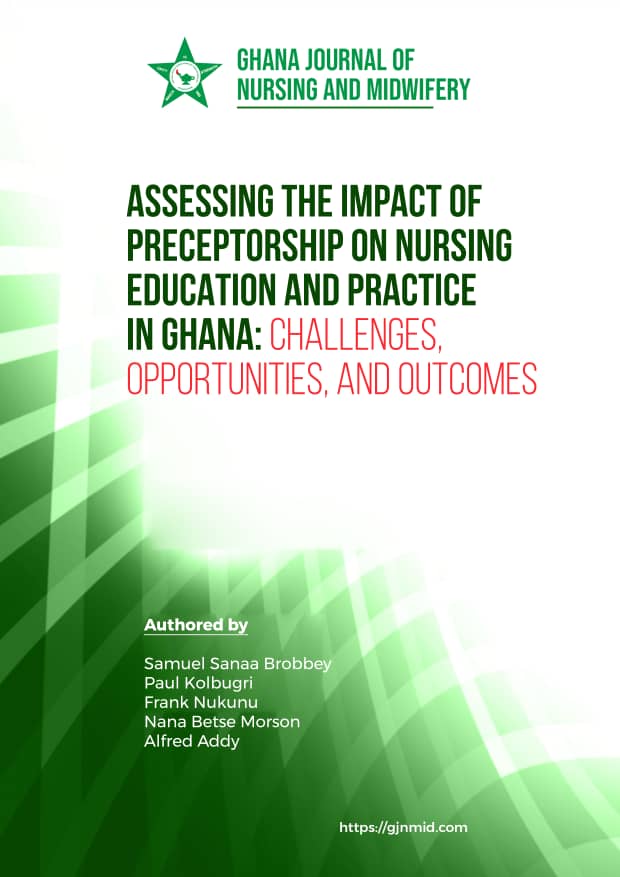Assessing the Impact of Preceptorship on Nursing Education and Practice in Ghana
Main Article Content
Abstract
Objective: This analysis aimed to evaluate the impact of preceptorship programs on nursing education and practice in Ghana, considering challenges, opportunities, and outcomes.
Method: A comprehensive literature review and synthesis of findings from studies and case examples from Ghana and other West African countries were conducted.
Findings: Preceptorship programs have the potential to enhance student learning outcomes, clinical competence, and confidence. However, challenges such as resource limitations and inadequate support for preceptors need to be addressed. Case studies demonstrate the benefits of preceptorship, including improved patient outcomes and strengthened collaboration between academia and practice.
Conclusion: Preceptorship programs can transform nursing education and practice in Ghana, but their success requires investment, support, and collaborative efforts from stakeholders.
Recommendations: Nursing education institutions and healthcare facilities should prioritize preceptorship initiatives, allocate resources, provide support for preceptors, and engage students and educators in the planning, implementation, and evaluation of these programs to optimize their quality, relevance, and impact.
Downloads
Article Details
Copyright (c) 2024
This work is licensed under a Creative Commons Attribution 4.0 International License.






